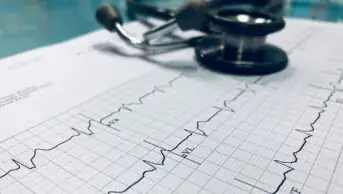
Science Photo Library
Adults with non-valvular atrial fibrillation prescribed apixaban have a lower rate of ischaemic stroke and systemic blood clots compared with those prescribed rivaroxaban, according to a retrospective cohort study in Annals of Internal Medicine (10 March 2020)[1]
.
People taking apixaban were also less likely to experience gastro-intestinal bleeding or bleeding in the brain.
Researchers studied a US insurance claims database to compare the safety and effectiveness of apixaban versus rivaroxaban for more than 78,000 patients with non-valvular atrial fibrillation.
After 290 days of follow-up, the rate of ischaemic stroke or systemic embolism was 6.6 per 1,000 person-years for adults prescribed apixaban, compared with 8.0 per 1,000 person-years for those prescribed rivaroxaban (hazard ratio [HR] 0.82; 95% confidence interval [CI] 0.68–0.98).
The apixaban group also had a lower rate of gastrointestinal bleeding or intracranial haemorrhage compared with those prescribed rivaroxaban (12.9 vs. 21.9 per 1,000 person-years; HR 0.58; 95% CI 0.52–0.66).
The researchers, led by Michael Fralick, a pharmacoepidemiology and pharmacoeconomics research fellow at the Brigham and Women’s Hospital in Boston, Massachusetts, wrote: “Until head-to-head clinical trial data are available, the results of our study … [provide] updated evidence in support of apixaban for treating non-valvular atrial fibrillation.”
References
[1] Fralick M, Colacci M, Schneeweiss S et al. Ann Intern Med 2020;172(7):463–473. doi: 10.7326/M19-2522
You may also be interested in

New class of anticoagulant found to ‘overwhelmingly’ reduce bleeding events in patients with atrial fibrillation

Nearly 92% of atrial fibrillation patients in England anticoagulated, says NHS adviser
